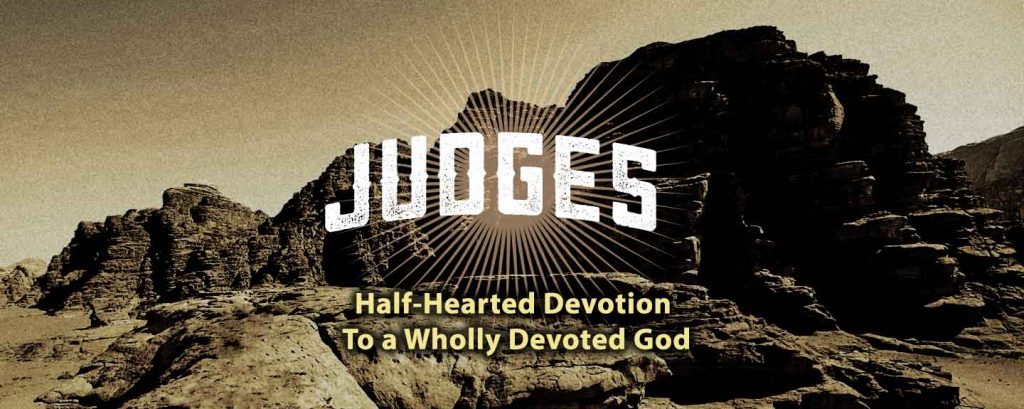Pastor Tom Ascol introduces a series of messages on the Book of Judges with this overview entitled “Half-hearted Devotion to a Whole-hearted God.” He noted the cycle of sin, judgment, and salvation evident in the book. The Israelites seemed to have difficulty, or were not concerned with, passing on the faith from one generation to the next. The result was a cyclical turning from and returning to God. This cycle presented a clear picture of God’s dealing with humans; He has no grandchildren, human lineage does not guarantee relationship with God. God only has children, those that individually come to Him.
The book is divided into three parts. The first, 1:1 through 3:6, looks back on Joshua’s conquest of Canaan and sets the context for the remainder of the book. The main body of the book, 3:7 through 16:31, describes the nation’s history after the conquest and before the monarchy. The final section, Chapters 17 through 21, presents two tragic vignettes illustrating the depth of sin in the nation.
The pastor explained that the word “judge” indicates more of a national or regional leader rather than the modern understanding of a judicial official. Still, none of these judges led forever; they all had sins and flaws and they all died. Only God is the true judge capable of adequately leading the nation.
Three themes quickly become apparent in Judges. The first theme reflects God’s blessing of His people only to have them forget Him. The applicability to modern Christians should be obvious. Despite our many blessings we forget the Blesser and often take His blessings for granted. Second, as a result of the peoples’ turning from God they are disciplined. The people then recognize their need and call out to God as they return to Him. Here modern parallels are also evident. God disciplines and calls His own through a variety of ways always with the desire they should return and lead a more Christ-like life. Believers ought not to view discipline through the lens of modernity. God’s discipline reflects His love for us, not some distorted or abusive lordship over us. Finally, the third theme is that God rescues His people and they enjoy peace. Today as we turn to God, as we recognize His dealing with us in our day-to-day lives, we too are able to have peace.
The book ends with Israel in need of yet another Judge, another Savior. God has provided that Judge and Savior in the Person of Jesus Christ. He comes without the sins and flaws of the earlier judges. Jesus alone is able to save, providing a salvation assured for eternity. We can joyfully follow this leader. For those who have not yet done so, only through coming to and trusting in Jesus Christ can one receive the security, peace, and eternal life God has planned for men.























